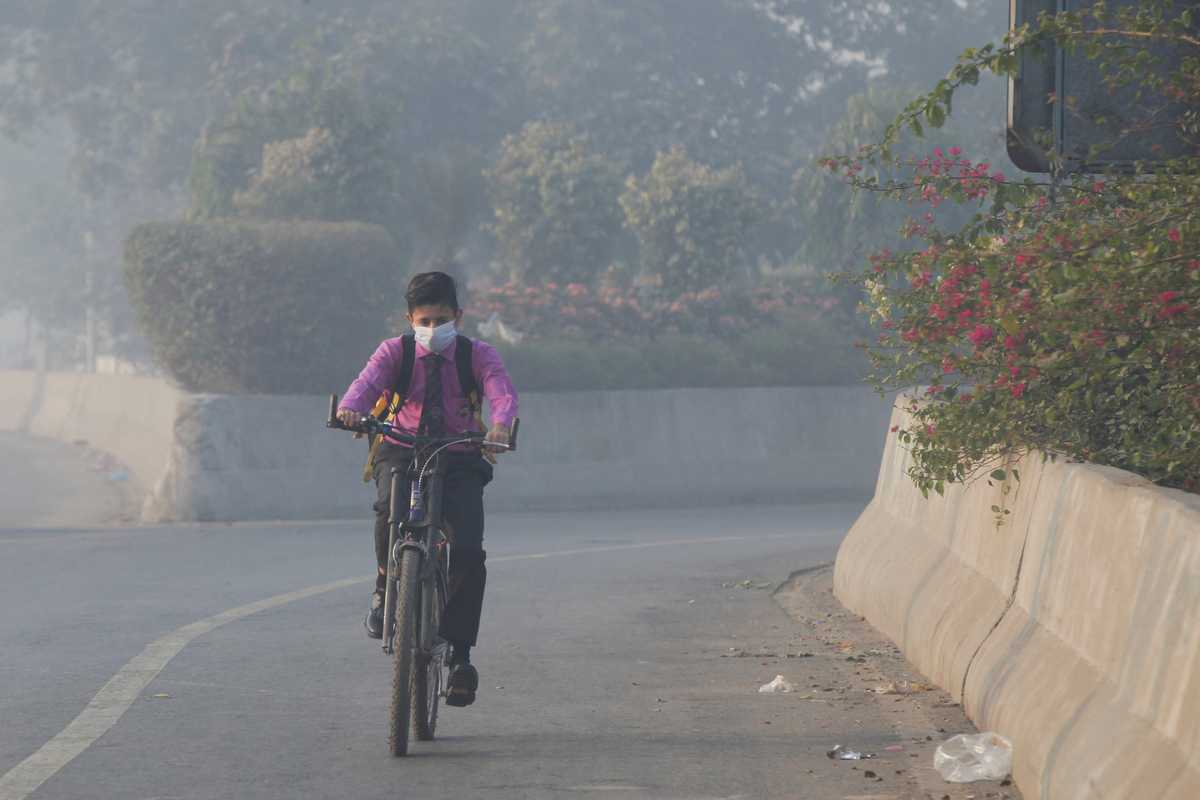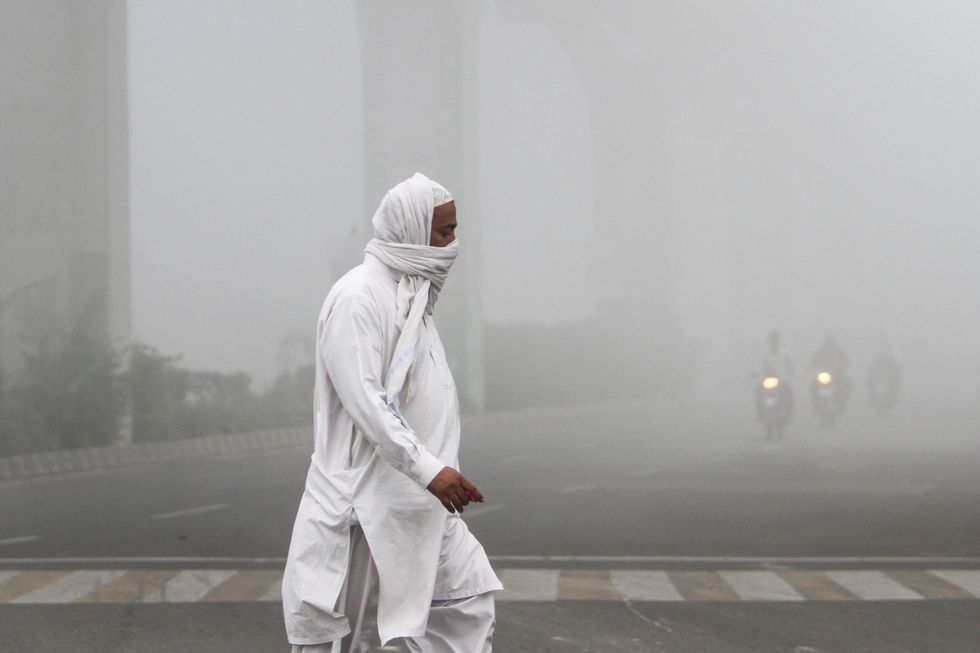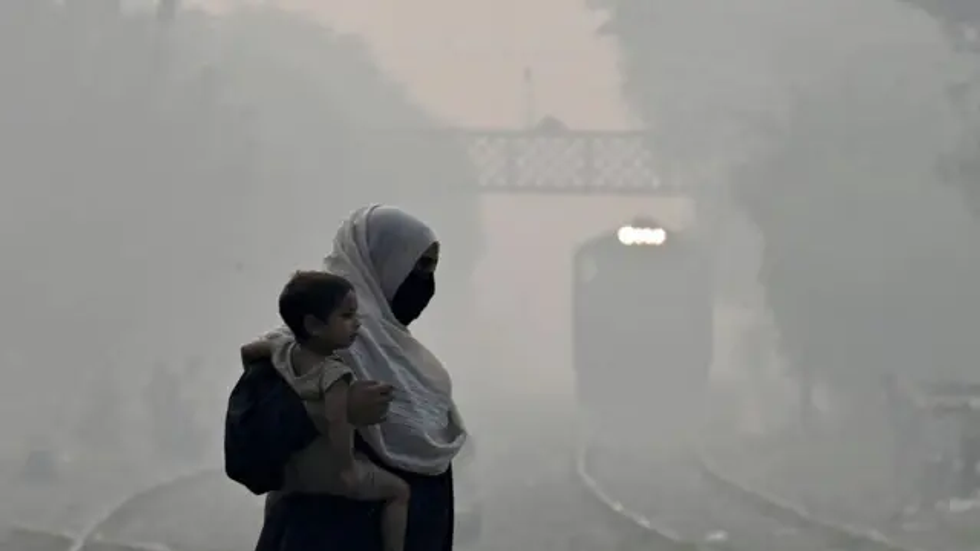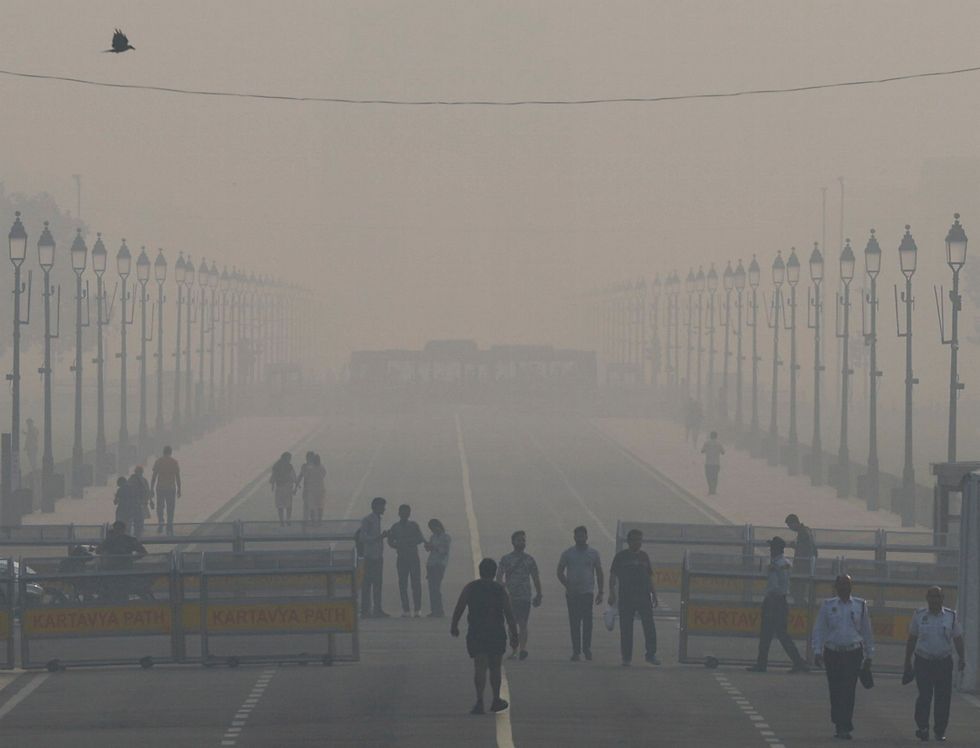Over 11m children in Pakistan at risk as smog crisis worsens: UNICEF warns
Lahore’s AQI hit 1,900, over 80 times the WHO safe limit
News Desk
The News Desk provides timely and factual coverage of national and international events, with an emphasis on accuracy and clarity.

Over 11 million young children exposed to toxic air in Punjab
UNICEF calls for urgent government measures to secure clean air
The United Nations Children’s Fund (UNICEF) on Monday called for urgent action in Pakistan, as over 11 million children under five are at risk due to air pollution levels reaching unprecedented highs in the province of Punjab.
In a statement published on its website, UNICEF's representative in Pakistan, Abdullah Fadil, expressed grave concern, stating, “As smog continues to persist in Punjab province, I am extremely concerned about the well-being of young children who are forced to breathe polluted, toxic air.”
He added that over 11 million children under five "are exposed to this smog in the worst-affected districts.”
As toxic smog engulfs Lahore, making it the worlds most polluted city, a father shares how his toddler became Pakistan's youngest litigant against the climate crisis. Nukta
Last week, the Punjab government ordered the closure of schools in smog-hit cities, shifting classes online until November 17.
The province had earlier closed primary schools, restricted tuk-tuk traffic, and shut down some barbeque restaurants in Lahore.
According to UNICEF’s statement, air pollution levels in Lahore and Multan last week exceeded WHO air quality guidelines by more than 100 times.
The statement added that hazardous particles were so dense they were visible from space, while hundreds of people, including children, were hospitalized.
Fadil emphasized that children are particularly vulnerable to air pollution, “because they have smaller lungs and lack the immunities that come with age.”
He added that children also breathe twice as fast as adults, taking in more air, which heightens the risk of life-threatening respiratory diseases.

UNICEF reported that, even before this smog crisis, air pollution was responsible for approximately 12 percent of deaths among children under five in Pakistan.
"The impact of this year’s extraordinary smog will take time to assess, but we know that doubling and tripling the amount of pollution in the air will have devastating effects, particularly on children and pregnant women,” Fadil warned.
According to the University of Chicago's Energy Policy Institute, pollution levels exceeding WHO safety standards shorten life expectancy by an average of 7.5 years.

As part of its emergency response, Punjab has closed schools in affected areas, impacting the learning of nearly 16 million children. Fadil noted, “Pakistan, already in the grips of an education emergency with 26.2 million children out of school, cannot afford more learning losses.”
Punjab Chief Minister Maryam Nawaz has called for “climate diplomacy” with neighboring India, recognizing the need for collaboration to combat the shared issue of hazardous winter pollution.

The upcoming COP29 summit provides an opportunity for decisive action, Fadil stressed.
“We cannot afford to let our babies breathe toxic air. We cannot let the health, education, and well-being of millions of children suffer. For the sake of our children and their future, we must take urgent action today,” he said.







Comments
See what people are discussing